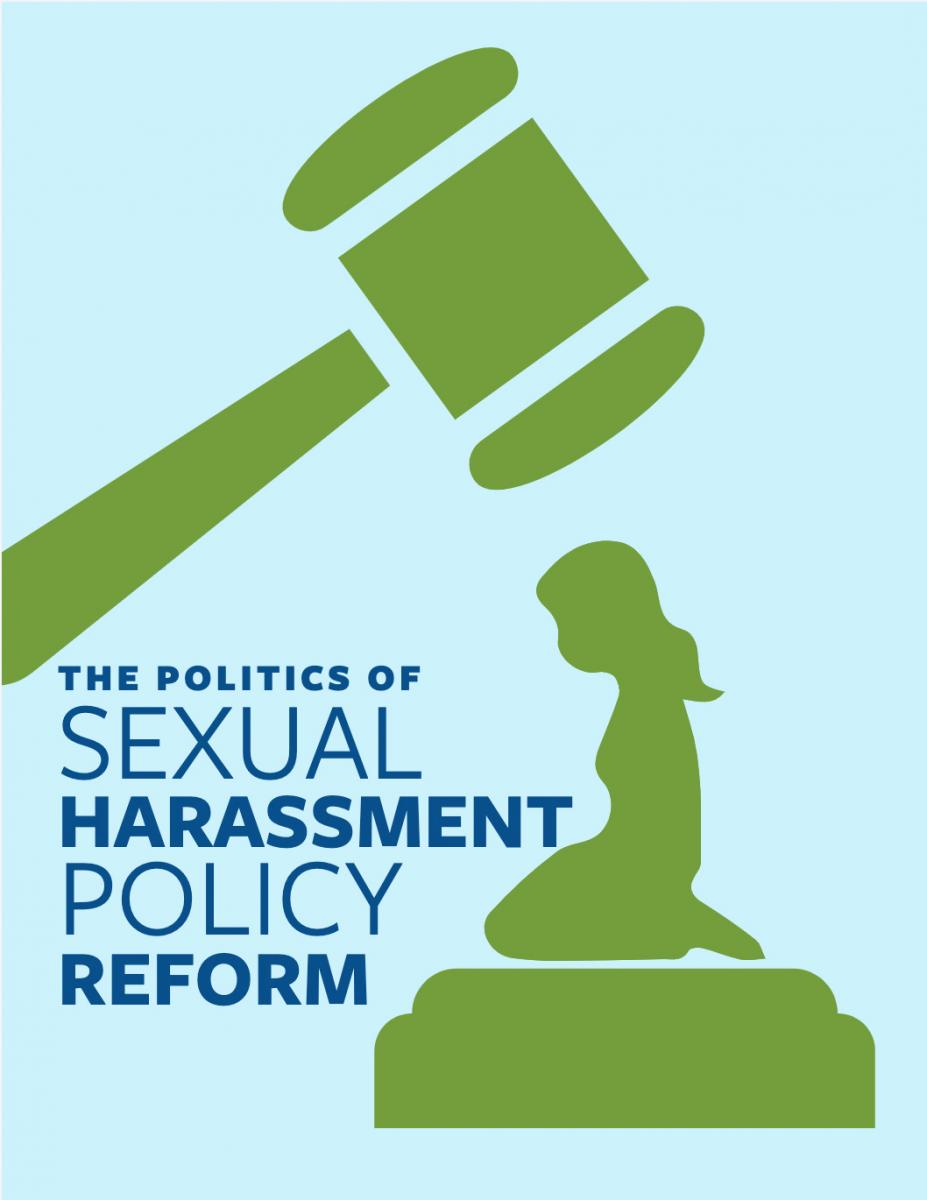
According to the Center for American Women and Politics (CAWP), more women are running for elected office than ever before. Increases in Congressional and state legislative candidacies may mean more women than ever serving in elected office, too. What effect will these women’s presence bring about? Will it change politics as usual? Women in office have had to deal with many challenges including having their issues left off the agenda, exclusion from powerful committees, and hostile work environments. Although sexual harassment, ranging from crude comments to assault, has been a pervasive force within state legislatures since their inception, written policies against it are often inadequate and rarely enforced. Will more women in office mean more and better sexual harassment policies?
Sexual harassment—quid pro quo or a hostile environment—consistently makes victims feel unsafe, unwelcome, and unimportant in the workplace. It tends to run particularly rampant in male-dominated institutions, such as state legislatures, where women are underrepresented numerically and marginalized by political norms. To address this social problem, organizations have created systems to investigate accusations and hold their members accountable. Unfortunately, decades after the first responses were put in place, sexual harassment still occurs, and experts warn that some processes are more effective than others in addressing the issue.
Today, most chambers have some sort of document prohibiting such behavior, but a majority of states are revising them in the wake of the Me Too movement, which inspires survivors from all walks of life to share their stories of sexual harassment and assault and take legal action against those who victimized them. The Me Too movement has rocked state legislatures across the country, with 101 legislators (and counting) facing accusations in 30 states in just the past three years.
In 2017, the National Conference for State Legislatures (NCSL) met the moment, publishing ten essential criteria for robust anti-harassment policies. These range from clear definitions and examples of harassment to the possibility of outside investigation and an appeals procedure. We began investigating state legislatures’ response to sexual harassment in March 2019 by obtaining as many state legislatures’ policies as possible to see how well they adhered to the NCSL guidelines. Some legislatures did not make their policies available to the public, indicating a concerning lack of transparency. However, we were able to collect 50 policies covering 64 chambers in 40 states, which we then analyzed and scored for best practices. Of the 50 policies, the average score was 7.33 out of 10. We determined that policies were most likely to include a confidentiality guarantee (found in 96% of the 50 policies), diversity of contacts to report harassment to (96%), and a retaliation ban (100%). An appeals process, found in only 24% of the 50 policies, was least likely to be included.
Clearly, change must transpire, but state legislatures face a number of challenges in mitigating sexual harassment. For example, studies indicate that training sessions may backfire by making victims resentful and providing employers legal compliance without real changes in culture. Institutions like state legislatures, often characterized as “old boys’ clubs,” are sometimes more concerned with preserving the status quo rather than making room for people of all genders to thrive. Elected officials deserve protection against harassment, but so do staffers, interns, pages, and lobbyists—all of whose jobs revolve around their abilities to serve and please others. State legislatures’ existing mechanisms to police themselves through ethics committees have not resulted in robust enforcement. Despite these challenges, state legislatures, as lawmaking bodies and models for private employers, must be leaders in establishing safe worker protections. By failing to respond to victims’ experiences, state legislatures discourage passionate, qualified people—particularly women—from running for office. With women’s representation in state legislatures hovering at 29%, these institutions must communicate that they are welcoming places to work.
All institutions, from legislatures to higher education, must deal with how power and identity shape workplace culture. Whether trying to produce the best public policy for constituents or world class research and teaching, workplaces must create safe, welcoming environments where people can thrive and do their best work. Regular monitoring and revising of workplace policy to be in line with best practices plays an important part in preventing sexual harassment. How state legislatures deal with sexual harassment matters for who considers running for office and what they choose to work on once they win a seat at the table.
Sexual Harassment Resources, Policies, and Prevention
In 2017, Tulane University was one of the first universities to conduct a campus-wide climate survey on sexual assault, sexual harassment, and sexual misconduct. In response to the findings in that report, the university created a committee to focus on faculty harassment out of the existing Sexual Violence Prevention and Education Committee and mandated sexual harassment training for all faculty and staff.
All In: Tulane’s Commitment to Stop Sexual Violence affirms the right of all students to access an education free of sexual violence and supports the belief that every member of the Tulane community has a part to play in a safer campus. The All In website offers resources for students, staff, faculty, and individuals in the community who have experienced sexual misconduct and/or are interested in learning how to support efforts to reduce and respond to sexual violence, including:
TULANE’S OFFICE OF INSTITUTIONAL EQUITY
504-862-8083
TULANE’S TITLE IX OFFICE
504-865-5615
CAPS FOR COUNSELING SERVICES
504-314-2277
SAPHE: SEXUAL AGGRESSION PEER HOTLINE & EDUCATION
504-654-9543
RAINN SEXUAL ASSAULT HOTLINE
1-800-656-HOPE (4673)
TREVOR PROJECT - LGBTQ LIFELINE
1-866-488-7386
Visit allin.tulane.edu for more information on Tulane’s sexual harassment policies and additional resources.

